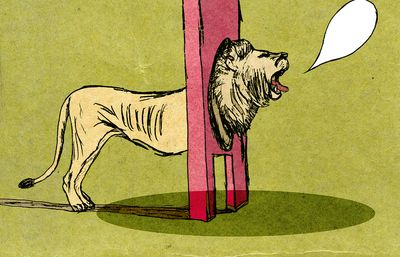Prime Minister Narendra Modi may have reversed a controversial and short-lived government order that used fake news as a pretext to punish journalists, but the debate is not over. Everyone agrees that the government—irrespective of which party is at the helm—has no business in the newsrooms of the world’s largest democracy. Everyone also agrees that quite beside the brazen attempts at political control by different parties, the challenge of fake news is real. The conversation has returned the focus to industry regulators like the Press Council of India. In an ideal world, this body should have evolved into a modern, independent, self-regulating mechanism with authority to penalise and reward as needed.
Instead, the Press Council has never seemed more toothless and redundant. The prime minister’s public order withdrawing the information ministry’s order also referred to the Press Council as the arbiter of all such fake news disputes. But, is the council really up to the task? Even in 2011, when we did not yet live in post-truth times, former chief justice of India J.S. Verma, who headed the self-regulatory panel that oversees television channels, had this to say about the Press Council: “Everyone knows the Press Council has failed in its mandate, and how ineffective it has been. So, why not wind it up or scrap it?” Verma went so far as to call the council a waste of public money.
The Press Council’s official remit is “for the purpose of preserving the freedom of the press, and of maintaining and improving the standards of newspapers and news agencies in India”. But, aside from the fact that over the years it has become a moribund and ineffective body, the fake news debate has also exposed the irony of what some of its members believe. Pratap Simha, BJP parliamentarian who was nominated to the media watchdog in 2017, is among those who forcefully stood by a proven fake news propagandist—Mahesh Hegde of Postcard News. Hegde was arrested in Karnataka by the Congress administration for a story on his portal that incorrectly blamed Muslim youth for an injury to a monk. While the arrest per se is debatable, the very fact that a member of India’s oldest media regulator can advocate on behalf of a website known to be communal and replete with inflammatory lies points to the cosmetic nature of the council.
The other deficiency is the division of media into silos of print and television; digital news media, which is where technology is pushing the biggest consumption of news, is not even factored in. The Press Council was born in the newspaper age four decades ago. By now, it should have been replaced or recast as a media council, where all platforms were represented. The outspoken former PCI chief Justice Markandey Katju recommended this, but unfortunately went to war with journalists in doing so. The present PCI chief Justice C.K. Prasad is locked in a battle with the Editors Guild of India and other journalist associations. This January, he rejected all their nominees for the council, citing a technicality from the rulebook. The guild has now openly questioned the political independence of the Press Council saying, “The recent reconstitution of the Press Council of India has been done in a manner that gives rise to doubts over the independence of the institution and its ability to play neutral umpire.”
It may suit politicians to point to the emasculated Press Council every time there is a clash with the news media. But, if journalists and editors can no longer trust it to be both inclusive and independent, it has done its time. We, in the media, need a new regulator, and one that the government has no control over.
editor@theweek.in


